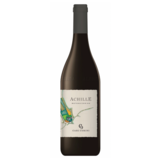Not available


Available bottle sizes:
Piedmont - Italy
Wine
Red
100% natural
Barbera, Nebbiolo
none
Not available
Loading...
Opps
Sorry, it looks like some products are not available in selected quantity.
OK

Achille, 2019
Additional information
We currently only deliver within the UK
Buy 6 or more bottles for free delivery!

